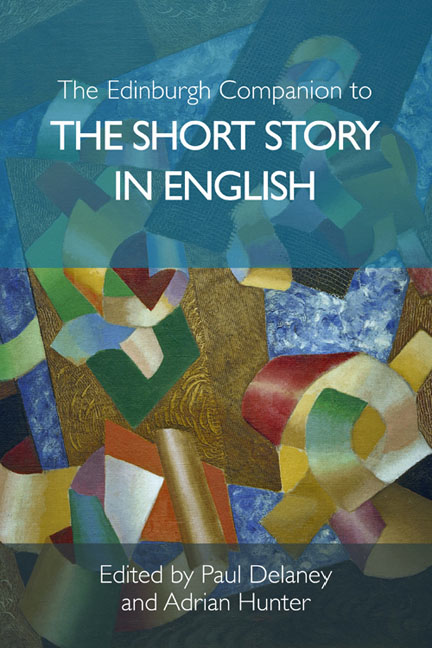Book contents
- Frontmatter
- Contents
- Acknowledgements
- Notes on Contributors
- Introduction
- Part I Historicising the Short Story
- Part II Publishing the Short Story
- Part III Forms of the Short Story
- 9 Short-Short Fiction
- 10 The Weird Tale
- 11 The Horror Story
- 12 Experimental Short Stories
- 13 The War Story
- Part IV Placing the Short Story
- Part V Identity and the Short Story
- Index of Short Story Titles
- General Index
9 - Short-Short Fiction
from Part III - Forms of the Short Story
Published online by Cambridge University Press: 18 December 2019
- Frontmatter
- Contents
- Acknowledgements
- Notes on Contributors
- Introduction
- Part I Historicising the Short Story
- Part II Publishing the Short Story
- Part III Forms of the Short Story
- 9 Short-Short Fiction
- 10 The Weird Tale
- 11 The Horror Story
- 12 Experimental Short Stories
- 13 The War Story
- Part IV Placing the Short Story
- Part V Identity and the Short Story
- Index of Short Story Titles
- General Index
Summary
THE QUESTION OF LENGTH – what makes a short story short – has never been far from view in critical discussions of the form. As early as the nineteenth century, the matter of upper and lower limits was debated, and quickly became entwined with questions about the short story's aesthetics and its particularities in relation to other literary genres. Edgar Allan Poe famously established brevity as the key generic marker of the short story by emphasising ‘unity of effect’, a quality that for Poe depended on the possibility that short stories could and should be read ‘at one sitting’, that is, without any interruptions or distractions. Brevity, for Poe, entailed a complex interaction between three elements: theme, structure and temporal length. While Poe's poetics valorised brevity mainly by patrolling the short story's upper limit, he also warned that there was a lower limit at which ‘extreme brevity will degenerate into epigrammatism’. Ever since, shortness, however defined, has been part and parcel of almost every discussion of the genre, and has often been treated as if it were an absolute rather than a relative category.
In recent decades, there has been a surge in popularity of very short narrative forms of various kinds, and this has brought with it renewed attention to questions of length. Broadly speaking, critical discussion has concentrated on two main issues: the formal properties and characteristics of these often radically truncated texts, and the sociocultural significance of their proliferation. On the latter, interest has fallen on the extent to which short-short fiction can be regarded as a peculiarly contemporary phenomenon, a response to the social and cultural realities of our historical moment. Some accounts have stressed that these forms are especially well equipped to capture an incoherent (post)modern world that can, if at all, only be adequately represented in fragments and vignettes. Short-shorts, so this argument goes, address the pluralisation and acceleration of a culture in which grand récits have been rendered obsolete and ideologically, but also aesthetically, questionable. A version of this thesis can be found in David Shields's much-noted Reality Hunger (2010), which reasons that shortshorts ‘gain access to contemporary feeling states more effectively than the conventional story does’, and goes on to compare such texts with other cultural forms of abbreviated expression, from movie trailers to fast food to bumper stickers.
- Type
- Chapter
- Information
- The Edinburgh Companion to the Short Story in English , pp. 147 - 159Publisher: Edinburgh University PressPrint publication year: 2018



